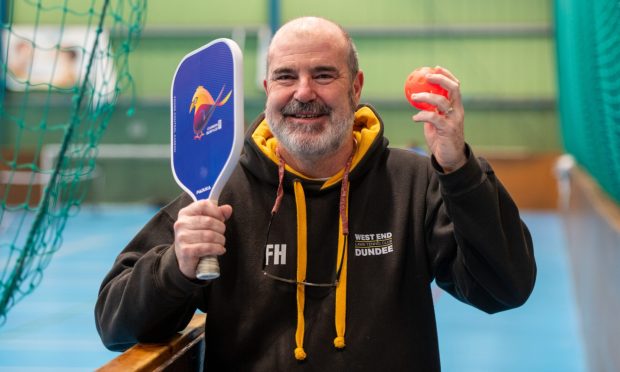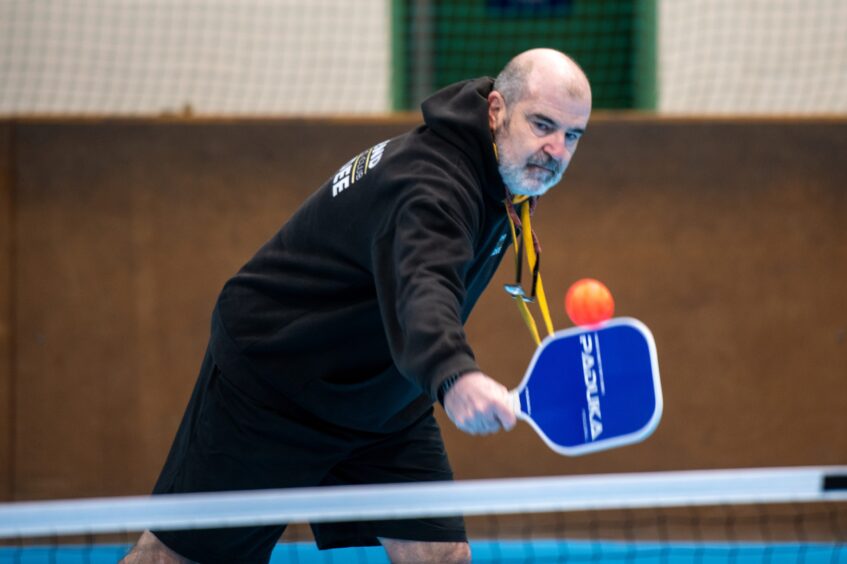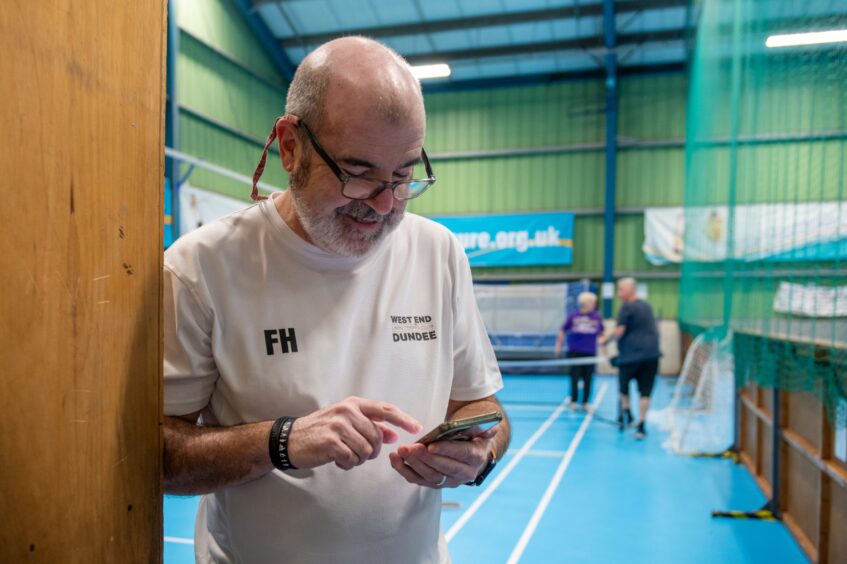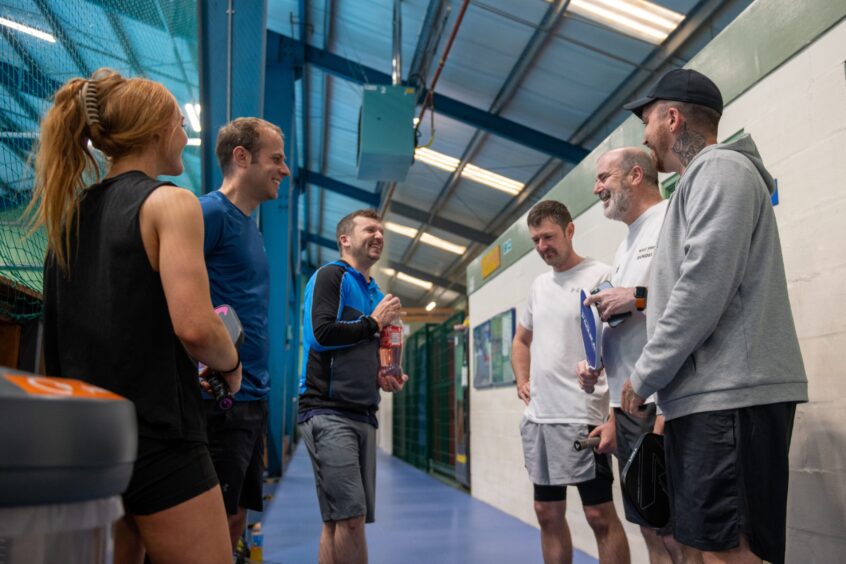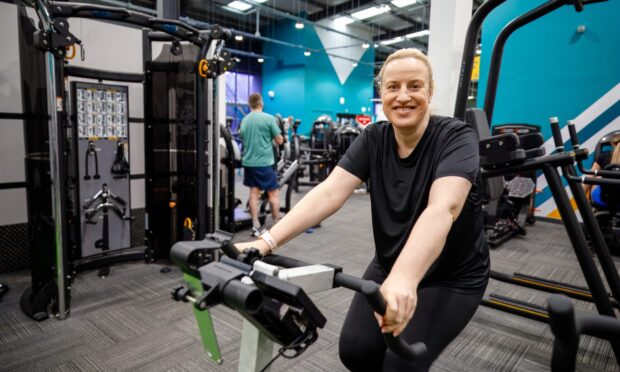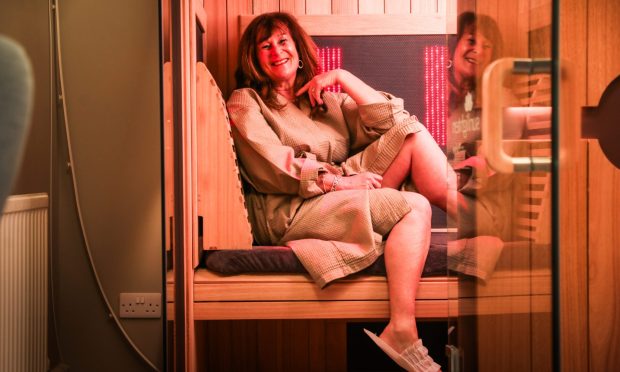Dundee psychiatrist Dr Fabian Haut, 59, has a “new love in life” – and it is a sport called Pickleball.
Like many in his field, his first tip for good mental health is to be physically active.
And for the Dundee-based consultant at the private Cygnet Wallace Hospital in the city, that means Pickleball.
“[It is] a slightly weird sport which was invented in the 1960s and is a combination of badminton, tennis and ping-pong,” he explains.
“Players can play as both singles and doubles, using paddles to hit a plastic ball between them. It’s a low-impact sport so it’s easier on the joints. It is also a very social activity.
“I play pickleball with my own family.”
His wife Helen works as a nurse in the stroke liaison team at the Royal Victoria Hospital in Dundee. She plays the sport, along with Dr Haut’s three sons, who are all in their 20s.
“I also play pickleball with my friends and when you play it you just can’t stop smiling.
“I try to play pickleball around four times a week.
“It is totally addictive!
“It definitely boosts my mood and my point here is that all physical activity does.”
I used to drink quite heavily – but I don’t anymore
He says when he was a young student in Germany, where he grew up, he “used to drink quite heavily” but things have changed as he has aged.
“I don’t really drink much alcohol now.
“It is a bit like a veiled assassin really because in the short term it is a stimulant.
“So we go out, have a drink, feel somewhat disinhibited and this feels really great.
“But alcohol ultimately depletes neurotransmitters that are involved in the pathogenesis [development] of depression.
“This is why people with serious drinking problems are commonly depressed.
“Like most things in life, if you have to drink – drink in moderation. Alcohol can be a slippery slope.
“For instance, some people get into alcohol misuse because they find alcohol helps them to sleep.”
I don’t need as much sleep as I used to – but getting enough is really important
Sleeping well is important for good mental health, he adds.
“If you don’t have enough sleep it not only affects concentration the next day but it also impacts on your energy levels and your mood.
“Your mental health will be better if your mind is refreshed after a good night’s sleep.
“Normally it is good to get eight hours sleep if possible but it depends on your age.
“For example younger people need more sleep than older people – I don’t need sleep as much as I used to.”
A night-time routine is also important, of course.
“People should stay away from screens, for example, mobile phones because the brain needs time to recuperate and switch off.
“Stimulants like tea and coffee should also be avoided as they can keep you awake.
“Having a shower and then perhaps reading for a time allows the body to relax and get ready for sleep.”
I try to be kind to others
“I think social media, platforms like Twitter and Facebook, can be very seductive.
“Before you know it you can be spending an hour looking at things which might not be true or photos which have been doctored.
“You also hear about remarks made on Twitter and Facebook and distressing things which are often written under anonymous names.
“People need to be mindful of this and I think this is why they should limit the amount of time spent on social media as it can have an impact on mental health.
“I also think we should make a conscious effort to be respectful to each other.
“As a psychiatrist I try and put that into practice – being kind to others
“It can be easier said than done sometimes when life is busy and stressful, but I think it’s really good for everyone’s mental health to do that.”
Make sure you see friends face-to-face
Covid and the lockdowns showed the negative effect social isolation had on people’s mental health, he adds.
“We also know that loneliness continues to be an issue, particularly among the elderly.
“A growing number of people feel isolated and this impacts on mental health.
“So this is why making social connections is so important. It might be through a walking group, through pickleball, or just having a cup of tea with someone face to face.
“These occasions offer an opportunity to talk about any worries and get support.
“These kind of positive social interactions are so good for your mental health.
“Despite all good tips, mental ill health can happen to anyone. If you are feeling low and desperate please remember to ask for help. You are not alone.”
Anyone needing someone to talk to can call Samaritans day or night on freephone number 116 123.
